Run Silent, Run Deep
I joined the navy when I was sixteen. When I was twenty-one, I was in charge of the sonar on board a nuclear submarine.
It’s always odd to read about my life on the Internet. Especially the bits I can’t talk about. I am still covered by the Official Secrets Act so I can’t talk about the goings-on aboard those dark, silent executioners of the deep but I figure I am safe just commenting on some of the points in this Daily Mail article.
Deep beneath the surface of the Atlantic, HMS Vanguard — one of four identical Royal Navy submarines carrying Trident nuclear missiles — is on patrol.
Moving at a fast-walking pace, she is out there right now; undetectable, untouchable and armed with more explosive power than was unleashed by all sides in the duration of World War II.
I spent almost a year on HMS Revenge — a Polaris submarine and a predecessor of the Trident submarines described in the article. Reading the story took me instantly back to a rainy dockyard on the banks of the River Clyde a few days after my twenty-first birthday.
Nothing prepares you for your first encounter with a ballistic missile submarine. It’s not so much her size: though she’s big, 150 metres long, which takes your breath away. It’s the overwhelming menace which drips from her glistening grey casement.
The article does a fine job of relating the cold, black steel of a submarine to the very human destruction that they can cause.
…how does it feel to be a part of the ‘human button’ a flesh and blood component in a well-drilled machine which, if deployed, would bring about the end of the world?
I like that phrase the human button. It captures the distinction between the make-believe, hair-trigger apocalypse machines of Hollywood and the fallible, flesh-and-blood systems in the real world.
We can’t say where she is right now, because we don’t know. Even the Navy does not know precisely. Nor do most of her 160 or so crew.
This is true. There’s a tiny handful of people on board who know where the submarine is and where she is going — though the rest of us could often guess that it was somewhere cold from the temperature of the ocean.
The day I joined HMS Revenge as a 21-year-old Petty Officer, she had just come back from patrol. Ballistic missile submarines (called Bombers by the submariners who live in them) have two completely separate crews — port and starboard. While one crew is on patrol, the other is taking vacation and preparing for the submarine’s next patrol. As soon as the submarine returns from patrol, the operational crew goes off on their holibobs after a beer or two and the other crew takes over.
Everyone on board a submarine has at least two jobs. I had four.
Sonar
My day job was to maintain the sonar systems along with another Petty Officer (are you out there, Mark?). This was what I had trained to do for the previous four years.
We divided the sonars between us. I knew every transistor and relay of Sonar 2001 (the main sonar) but, unfortunately, Mark got 2001 while I got all the others and I knew much less about those. I had around 10 systems to maintain, including the towed array, the anti-sonar-sonar, the underwater telephone, the depth sounder and all the hydrophones.
The sonars were all ancient and they all broke down a lot—usually in the middle of the night. I would get summoned to repair them and I was the only one on board who knew how to fix them. It’s pretty stressful when the most important sonar on the submarine breaks and you have the Captain and the Weapon Engineering Officer standing behind you asking when it is going to be fixed.
A submarine with no sonar is blind and has to return to port. Better fix that sonar quickly! It took me around 72 hours with no sleep the first time the towed array broke.
OPSO
Everyone has a watchkeeping job in addition to their day job. My watchkeeping position was Operations Officer (OPSO). During normal running, there are four senior people in the Control Room of the submarine: the Officer of the Watch who commands the ship while the captain is off doing other captainy things; the panel watchkeeper who monitors all the tanks and valves that keep the submarine at the right depth; the planesman who steers the boat; and the OPSO.
The OPSO supervises a bunch of sonar operators and consolidates their reports to keep a plot of the ships and boats nearby. Our submarine did have ‘active sonar’ (the PING-BLIP of sonar in the movies) but British submarines almost never use it. Unlike radar, passive sonar does not give you the distance of the target. You get the direction of the target from the noise it makes but you have no idea how far away the target is or what direction it is travelling. The OPSO and his assistants have to guess.
The initial report comes from the Sound Room where a bunch of 16-year-old boys sit listening on their headphones. The navy uses young boys because their hearing is better.
“Large Merch. Bearing 079.”
Another operator adds the contact to the computer system to join the dozens of others that we might be tracking. We can’t tell how far away this ship is and we guess based on the speed and how quickly the bearing is changing. If the bearing rate is high, the ship is probably close but unlikely to collide with us. If the bearing rate is low the target ship is either very far away or it is coming straight at us (Yikes!).
Every now and again, the sonar room invents a fake ship on a collision course as a test to frighten the OPSO and see how he reacts. Everyone knows that the situation is fake except the OPSO and you can hear the stress in their voices as the reports get ever more frantic. In my first stress test, I was commended for handling the situation well but criticised for failing to panic sufficiently.
Fire!
On a surface ship, there’s a small firefighting team. If there’s a fire, the firefighters go fight the fire while everyone else finishes their dinner. On a submarine, everyone is a part of the firefighting team because fires are so much more dangerous.
For my third job, I was a member of the firefighting attack team. If there is a fire, it is the attack team’s job to run and grab the breathing apparatus and a cotton anti-flash and run into the fire with an extinguisher. We would fight the fire until the main firefighting team put on their fire-resistant polar bear suits and then they take over with proper firefighting gear.
Submarines have a lot of fires. Most are insignificant and put out quickly but others are proper, scary fires.
We had one fire in the auxiliary machinery room that was quite serious and Mitch (an older marine engineer with years of experience) and I reached for the last breathing apparatus at the same time. Mitch said, “You better let me take this one, son” and ran into the fire.
Torpedo! Torpedo! Torpedo!
For my fourth job, I was a torpedo guider.
The whole point of a Polaris submarine is to silently patrol the deeps, waiting for the command to fire the missiles that will bring on armageddon. The submarine tries to remain undetected while we wait for a call from the prime minister. Submarines are very, very quiet but launching a Polaris missile makes so much noise that every enemy submarine within a few hundred miles will hear it and immediately come to hunt us and kill us. That’s when it’s handy to have a few torpedoes of our own.
Every few days, we’d receive a signal from the UK telling us to fire a Polaris missile and at the last minute, they’d tell us whether the order was for real or just for practice. My job was to run to the torpedo panel and get ready to fire a torpedo. The torpedoes are wire-guided to the target by the ‘guider’ (me) who sits at a panel with a little screen showing the location of the torpedo and the target — just like a video game.

We only got to fire a real torpedo once — on the range in Loch Long. That’s probably because they cost £750,000 each.
Believe in the Mission
Our Captain was a laid-back dude but the First Lieutenant (The Jimmy) was totally Ra! Ra! Ra!
The Jimmy made a speech over the tannoy as we left the Clyde for our patrol proper and said that if there was anyone on board who was not 100% committed to the mission, they should come up to the Control Room right now and he would arrange for them to be dropped ashore. My messmates held me back. I have been opposed to nuclear missiles since I was 18 but to have protested in that situation would have taken me into a world of trouble.
Apart from the fires and the practice missile launches and the constantly breaking sonar systems and that time we nearly ran out of oxygen, the patrol passed peacefully. Mostly I remember the boredom that was only relieved on Saturday nights when we’d have a dinner of steak and smoked Austrian cheese. Bomber crews always got the best food to keep our morale up. After dinner, my musical messmates would play English and Scottish folk songs late into the night while we drank heroic quantities of Carling Special Bitter.
We’d occasionally have a fun event like Miss HMS Revenge where the youngest sailor in each mess would be entered into a beauty contest in drag. The winner got to spend a half hour in each of the other messes to boost their morale.
Another event was the horse racing where each mess made a foot-tall horse out of papier-mâché plus some enormous dice and we raced them around a track. Sailors would form syndicates to buy a horse in an auction with winner-take-all. I was in a syndicate with two dudes from the Sonar Room and we bought a horse for several hundred pounds.
Coming Home
When we finally arrived back in the Clyde after three months away, we had to navigate the dozens of fishing boats and the Russian Spy Ship that patrols the mouth of the Clyde to count the submarines out and count us back in again.
The first order of business is to open all our mail since we had no communication while we were away. There was always a shocking number of Dear Johns and reports of deaths in the family and house fires and car crashes among the sailors who had not heard from their families in three months. I got my Dear John from Fiona and Mark’s girlfriend confessed a night of wild sex with the girl who lived next door.
I got one special letter though. I had been selected to go to Britannia Royal Naval College to become an officer. No more patrols for me. A month later, I was a midshipman at Dartmouth and three months after that I left the Navy for good.
When you get promoted to officer, as far as the Navy is concerned you have left the Navy and rejoined. When you join the Navy, you are allowed to leave the Navy for any reason in the first three months and that was my plan all along.
When I got home, I bought my round-the-world ticket: Los Angeles, Tahiti, Sydney, Darwin, Bali, Singapore, Bangkok and home again to start my new life for real. But that’s a story for another day.
A tiny request. It’s so very hard to get noticed when you start out as a writer on Substack. Please consider sharing this essay so that others will see it. Maybe even add a little note of your own.

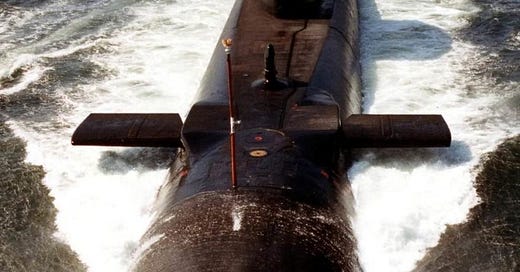


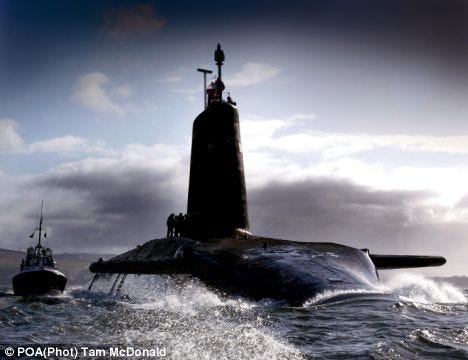

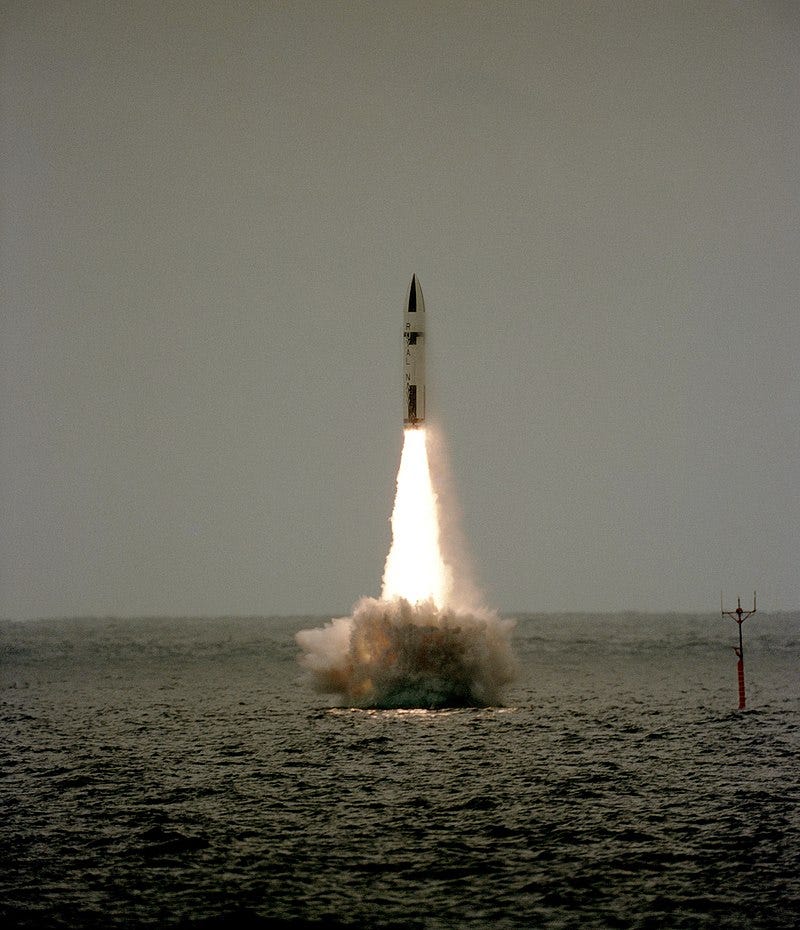
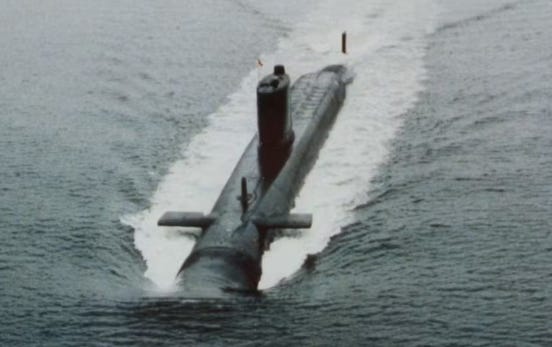
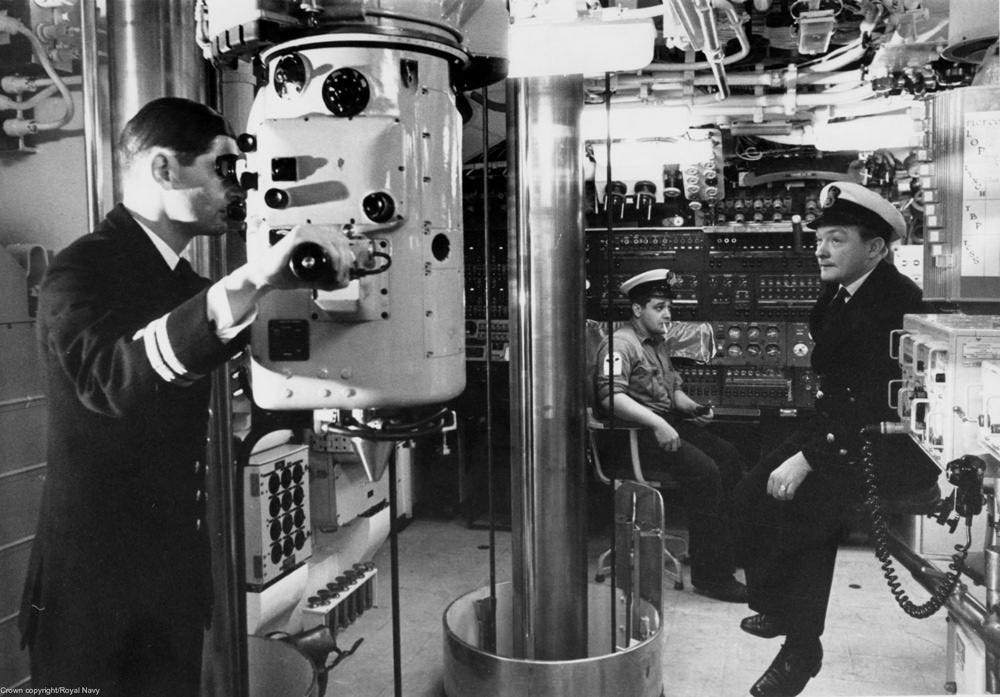
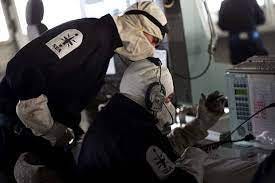
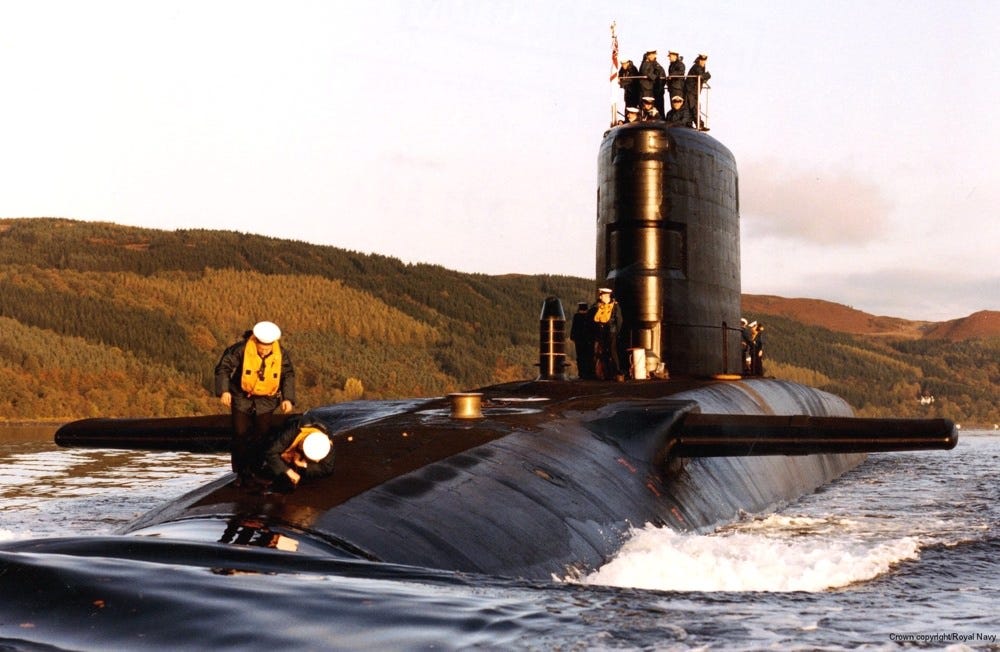

So interesting....My parents were both in the navy and I had a boyfriend who was a naval officer, so stories of life in the Senior Service always feel cosy to me. There's an ex-submariner at the Edinburgh Fringe who does a great show about his experiences: Eric's Tales of the Sea - recommend!
Loved this! Thanks, Kevin. The submarine officer I was married to, in a millenium long ago and far away, told me nothing, and I mean NOTHING about life aboard the fast attack sub on which he was sonar officer, other than having to be awakened constantly when messages came in, and the loud clicking of shrimp. Oh, and how brief the showers were, and cold. And how good the food, much of which, uneaten, they loaded into sanitary and blew when they were coming in to port. And that the sub tender they tied up to, that did their laundry, had 2 pieces of equipment he never actually saw but clearly visualized and believed in, one that snatched all the buttons off of shirts and one that ate one of ea. pr. of socks.